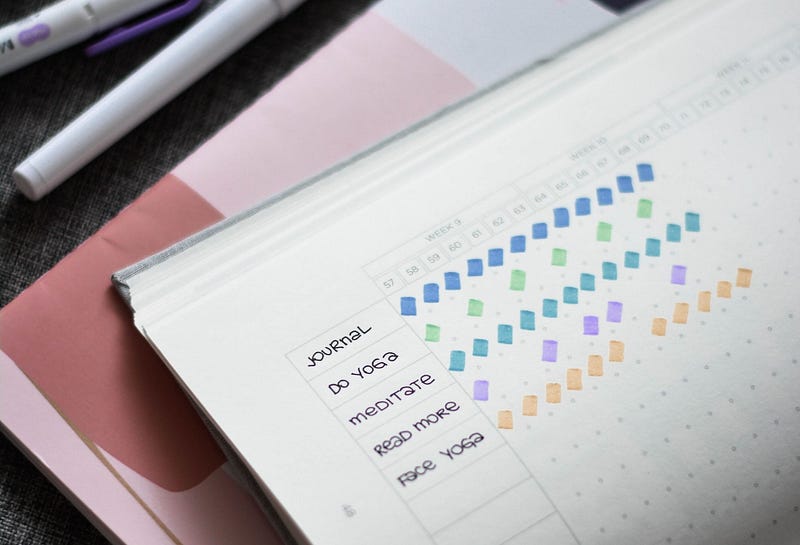Mastering Habit Formation: Breaking Myths and Building Success
Written on
Understanding Habit Formation
The question often arises: why do some people struggle to create new habits? Many self-help books suggest that repeating an action for 29 days is sufficient to establish a habit. However, this notion is widely considered a myth, stemming from misinterpretations of Maxwell Maltz's work.
In fact, the most credible research I’ve encountered regarding the time required to form a habit was published in the European Journal of Social Psychology in 2009. Their findings suggested a range of 18 to 254 days. However, I believe their methodology was flawed and overly optimistic; they designed the study to favor habit formation and concluded prematurely before reaching the 254-day mark.

Typical Misconceptions
Many people lack the knowledge or insight to approach habit formation effectively. As a habit coach who has cultivated numerous habits, I can confidently say:
- The process varies for each individual.
- Generally, it may take around a year of consistent practice for a habit to become integrated into one’s life.
Types of Habits: Bodily vs. Non-Bodily
There are various types of habits, and the easiest ones to establish are what I call Bodily Habits. These involve physical activities such as eating, sleeping, drinking, and exercising. For instance, it took me less than 10 days to develop the routine of drinking a glass of cold water right after my morning workout.

On the other hand, habits that primarily engage the mind, such as writing, praying, meditating, or even simple tasks like sending thank-you notes, are more challenging to cultivate. These activities lack the direct physical triggers that often facilitate habit formation.
The Importance of Triggers
It's crucial to understand that mere repetition of an action does not guarantee it will become a habit. A habit loop consists of three components: a cue (trigger), the routine (the action), and a reward (endpoint). The first and third components are just as vital as the routine itself. Research has shown that while you cannot erase a habit loop from your brain, you can substitute a new routine for the existing one.
For example, if smoking a cigarette is your routine after getting off the bus, you might replace that behavior with chewing gum, using the same trigger to foster a new habit.
How to Break Bad Habits: This video discusses the habit loop, detailing effective strategies for breaking undesirable habits and replacing them with healthier alternatives.
To successfully form a habit, it’s essential to clearly define all three elements of the habit loop and to repeat the behavior under the same conditions.
An Example of Habit Formation
One of my most entrenched habits is speed reading during my daily commute. My trigger is stepping onto the subway train and positioning myself near the doors. I then take out my Kindle and start reading for the duration of my 10-minute journey, with the endpoint being my arrival at the station.

The Journey to Mastery
While developing simple Bodily Habits can be relatively straightforward, more complex habits, like writing 1,000 words daily, require significant effort and time. There’s a risk of losing these habits altogether, as I discovered when I stopped my routine of commenting on blog posts due to overwhelming responsibilities. Despite my dedication, that habit faded.
However, the silver lining is that the habit loop remains in your brain permanently. Recently, I've been working to revive my commenting habit. Although my consistency is still a work in progress, I’ve found that the routine is ingrained in me, making it easier to reintegrate.
The Habit Loop Explained: This video elaborates on the concept of the habit loop and how understanding it can facilitate the development of new, positive habits.
For further insights into habit formation from a practitioner's viewpoint, consider exploring the Infallible Framework for Habit Development.